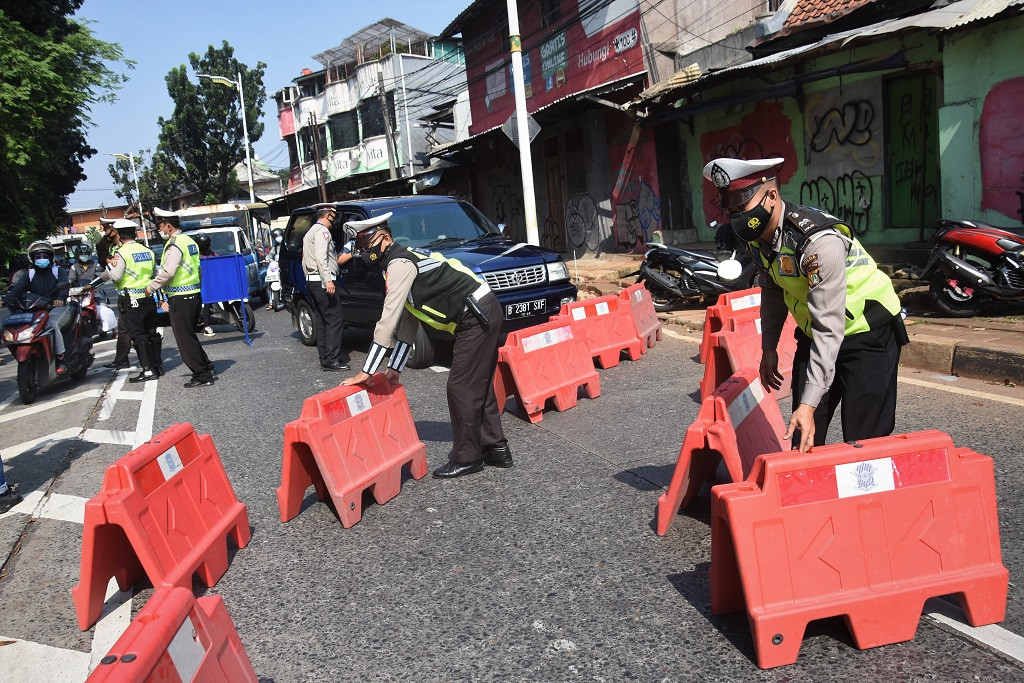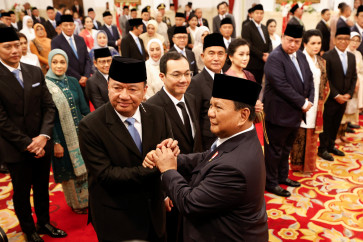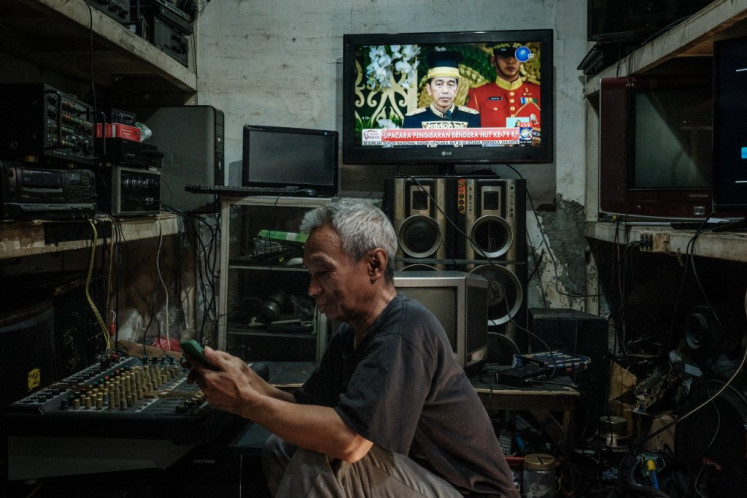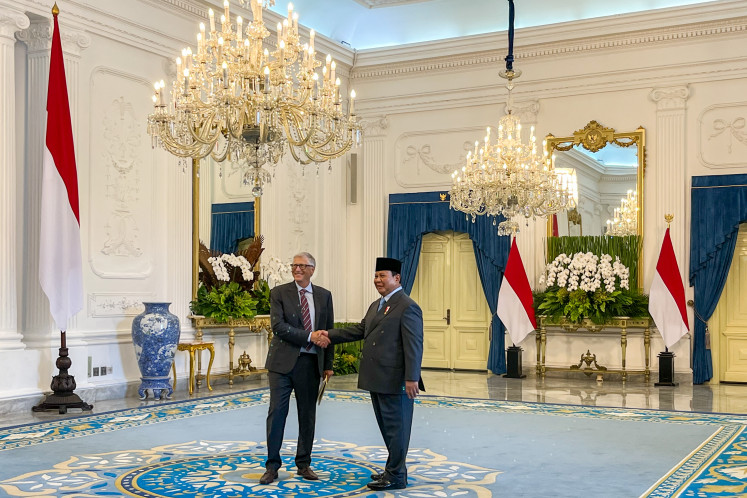More Indonesians disapprove of Jokowi’s pandemic handling
Public approval of President Joko “Jokowi” Widodo's handling of the pandemic has dropped over the past six months, a recent survey has shown.
Change text size
Gift Premium Articles
to Anyone

P
ublic approval of President Joko “Jokowi” Widodo's handling of the pandemic has fallen over the past six months along with trust in his ability to handle the crisis, a recent survey has shown, as the country continues to face an unprecedented wave of infections.
The Indonesian Survey Institute (LSI) study, which polled 1,200 respondents nationwide in late June, before the worst of the current outbreak, found that Jokowi’s approval rating had fallen to 59.6 percent from 68.9 percent in December 2020 and 66.4 percent in November 2020. The June rating, published on Sunday, was only slightly higher than his record low of 57.9 percent in October of last year.
The number of respondents who said they were dissatisfied with his COVID-19 handling increased to 37.2 percent in June from 28.9 percent in December of last year.
The survey was conducted as daily cases began to surpass 15,000 in June, a surge fueled by increased mobility around the Idul Fitri holidays and the spread of the more contagious Delta variant of the virus.
Daily cases rose sharply in the last week of June and overwhelmed hospitals across Java, but the government, for a time, defied calls from experts to impose stricter restrictions. On July 3, the more stringent emergency public activity restrictions (PPKM Darurat) were put in place on Java and Bali.
Even so, cases and deaths soared to an unprecedented level, beyond what authorities had predicted, with hundreds of people dying outside hospitals and widespread oxygen shortages. Public compliance with health restrictions remained low, and mobility stayed high. Critics have blamed the failure on the inconsistency of the government’s COVID-19 response from the beginning.
Read also: Jokowi faces rumblings of discontent as pandemic crisis deepens
Cases have begun to drop over the past few days, although deaths continue to increase.
“Two factors contributed to the drop in rating; people did not see the economy recovering quickly enough and cases surged. This made the President look clueless with his COVID-19 handling,” LSI executive director Djayadi Hanan said.
“The drop [in approval rating] explains why we now keep having problems during PPKM Darurat. What is interesting is that in provinces that are currently implementing PPKM Darurat, you can see a comparatively high dissatisfaction with the handling of the pandemic,” he added.
He was referring to Jakarta, West Java and Central Java, which have become the hot spots of the current outbreak.
The decreasing approval rating corresponds to declining public trust in Jokowi’s ability to handle the pandemic, at 43 percent in the survey, down from 56.5 percent in a February poll. Some 23 percent did not trust the President’s actions and 32 percent were neutral. Djayadi said the government needed to maintain a higher level of public trust to be able to carry out COVID-19 policies such as mobility curbs and vaccinations.
“And for the first time during the pandemic, the level of trust was below 50 percent,” he said. “If it is not handled well, this will become a problem.”
Respondents were evenly divided between those who thought the government should prioritize public health and those who believed it was better to focus on the economy, although the latter had grown slightly from a September poll. This, Djayadi contended, meant that PPKM Darurat extension should come with “economic solutions” for affected people to ensure compliance.
Read also: Officials slammed for ‘tone-deaf’ remarks amid COVID-19 crisis
Working from home is a vital part of PPKM Darurat. But some factory owners have circumvented the policy by forcing workers to instead work during holidays or by ordering workers to work from home for a certain period only to be followed by a 14-hour shift the next day, according to the Confederation of Indonesian Prosperity Trade Unions (KSBSI). These conditions, the labor union said, had resulted in factories becoming hotbeds of transmission, while many other workers had lost their jobs.
The National Network for Domestic Worker Advocacy (Jala PRT) and the Trade Union Rights Center (TURC), meanwhile, found that domestic and informal workers had been struggling to access social aid, even though Jokowi had ordered immediate distribution.
Poll results released last month by Saiful Mujani Research and Consulting (SMRC) showed a similar downward trend, with 61.8 percent of respondents approving the Jokowi administration's COVID-19 response in May, down from the 69.2 percent in early March. It also found that 52 percent of respondents were satisfied with the government’s handling of the economic recovery in May, down from 61 percent in March.
Read also: Pandemic blunders fail to dent Jokowi’s popularity
Coordinating Maritime Affairs and Investment Minister Luhut Pandjaitan, who is in charge of the enforcement of the emergency restrictions on Java and Bali, recently publicly apologized for the shortcomings in the implementation of the restrictions. He said the government was aware that while mobility curbs were necessary to reduce transmission, they had impacts on the economy.
“[The apology] may have been a good gesture, but the government should have apologized in March [of last year], because they failed to protect the people from the pandemic from the get-go,” said Mirza Fahmi of the Lokataru Foundation, a legal advocacy and human rights group.
PPKM Darurat were extended on Tuesday, with Jokowi saying restrictions would begin to ease on July 26 if cases continued to fall. He added that the government had increased its distribution of social aid.
On Tuesday, Muslims celebrated Idul Adha. Some fear the attendant celebrations could contribute to another surge of cases if not managed correctly.
-- Dio Suhenda contributed to this story.









